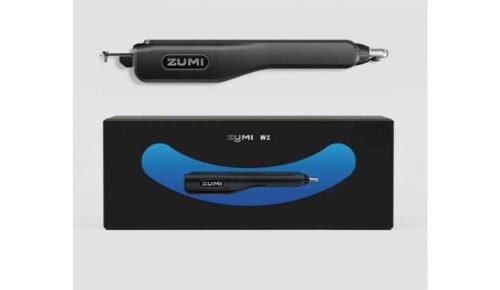Ensuring that your products comply with Amazon FBA quality control standards is crucial for success on the platform. Maintaining high-quality control can help avoid returns, negative reviews, and potential removal of your listings. To comply with Amazon’s standards, you should conduct pre-shipment inspections to spot any issues before your products reach Amazon’s warehouses.
Using third-party inspection services can be beneficial in this regard. These services can send inspectors to your supplier’s factory and verify that your products meet all requirements. Additionally, leveraging Amazon fulfillment services from experienced partners can streamline your logistics and ensure faster, more reliable shipping.
Implementing these practices helps reduce the order defect rate (ODR), which Amazon requires to be less than 1%. A lower ODR improves your seller reputation and ensures your listings remain active. By focusing on quality control, you not only maintain compliance but also build customer trust and satisfaction.
Understanding Amazon’s Quality Control Standards
Amazon’s quality control standards ensure that products meet specific criteria before they reach customers. Sellers must adhere to these standards to avoid penalties and maintain a good standing on the platform. Compliance with these standards is crucial for preventing issues like product recalls and negative reviews. Regularly reviewing and updating your quality control processes can help you stay aligned with Amazon’s evolving requirements. Additionally, leveraging Amazon’s tools and resources for sellers can provide valuable insights into maintaining high product standards.
Importance of Compliance for FBA Sellers
Compliance with Amazon’s quality standards is crucial for maintaining your selling privileges. Amazon measures the Order Defect Rate (ODR), which is the percentage of orders with reported issues. To stay in good standing, your ODR must be under 1%.
If your ODR exceeds 1%, Amazon may take actions like removing listings, limiting your ability to sell, or even withholding payments. Ensuring compliance helps you avoid these consequences and keeps your business running smoothly.
Adhering to Amazon’s quality standards also builds customer trust. Buyers are more likely to purchase from sellers with consistent, high-quality products. Meeting these standards can result in positive reviews, which are crucial for your store’s reputation.
The Role of Inspections and Quality Checks
Inspections and quality checks are necessary to ensure that your products meet Amazon’s expectations. Before shipping, a pre-shipment inspection can identify any defects or quality issues. This step helps you catch problems early, avoiding disruptions later on.
A thorough product inspection involves checking for visible defects, and damage, and making sure the product complies with safety regulations. Employing a third-party inspection service can simplify this process and provide an unbiased evaluation.
Regular quality checks also help you maintain consistency. By continuously monitoring product quality, you can quickly address any recurring issues. This proactive approach minimizes the chances of quality problems reaching your customers.
Navigating Amazon FBA Requirements
Navigating Amazon FBA requirements can be complex but is essential for compliance. It’s important to understand the specific quality requirements and guidelines that Amazon sets for sellers. These guidelines include packaging, labeling, and product safety standards.
Reviewing and following the regulatory requirements can prevent issues and ensure compliance. Amazon provides detailed documentation to help you understand these requirements.
Using checklists can break down the requirements into manageable tasks. A well-managed FBA inspection process involves verifying each item’s compliance before it is sent to Amazon’s fulfillment centers. Staying organized makes it easier to meet all necessary conditions.
Understanding these key elements will help you navigate the complex landscape of Amazon’s quality control standards effectively.
Best Practices for Maintaining Product Quality and Compliance
Maintaining product quality and adhering to compliance standards are essential for success on Amazon. Key aspects include effective inventory management, selecting reliable suppliers, and ensuring proper packaging and labeling. Regular audits of your supply chain can help identify and address potential quality issues early. Adopting strong quality assurance practices, such as batch testing and third-party inspections, can further safeguard your compliance. Additionally, staying updated on Amazon’s policy changes and industry regulations will help you avoid compliance pitfalls.
Effective Inventory Management
Managing your inventory efficiently minimizes the risk of stockouts, overstock, and inventory damage. Utilize software tools to track inventory levels in real time. This helps in anticipating demand changes and planning restocks accurately.
Proper storage conditions are also important to avoid damage. Store products in a controlled environment to maintain their quality. Additionally, use FNSKU labels to ensure smooth processing through Amazon’s fulfillment centers. This reduces the likelihood of inventory errors and improves customer satisfaction.
Implement regular quality inspections to catch potential issues early. Customer feedback is crucial for identifying recurring problems and improving processes. This helps maintain a good reputation on the Amazon platform.
Choosing the Right Suppliers and Inspection Services
Selecting reliable suppliers ensures the quality of your products. Thoroughly vet suppliers to verify their ability to meet your specifications consistently. Consider using a third-party inspection service to assess product quality before shipping.
Inspections can catch defects that might slip through your internal checks. Services like Tetra Inspection offer specialized checks aligned with Amazon’s standards. This minimizes the risk of defective products reaching customers, reducing returns and negative feedback.
Effective supplier relationships are essential for a stable supply chain. Regular communication helps in resolving issues quickly. Assess supplier performance periodically to ensure they continue to meet your quality expectations.
Ensuring Safe and Compliant Packaging and Labeling
Proper packaging reduces shipping costs and protects products from damage. Use high-quality materials and correct packaging techniques to safeguard your items. Compliant labeling is crucial to avoid delays and fines at fulfillment centers.
Ensure that your labels, including FNSKU labels, are placed correctly. Incorrect labeling can lead to inventory issues and delayed shipments. Clear and accurate labels help in the efficient processing of items in Amazon’s fulfillment centers.
Include detailed product information and safety instructions on the packaging. This helps in building customer trust and reduces the likelihood of returns due to misunderstanding or misuse. High-quality images on the packaging can also improve the product’s appeal and provide clear usage instructions.
Conclusion
Complying with Amazon FBA quality control is essential for your success as a seller. Consistency in meeting these standards helps maintain customer satisfaction and reduces the risk of returns and negative reviews.
By following Amazon’s guidelines, you can avoid potential penalties and disruptions to your business operations. Regular inspections and adherence to quality control measures are key steps in this process. Make quality control a priority to ensure smooth and successful selling on Amazon.









































































































